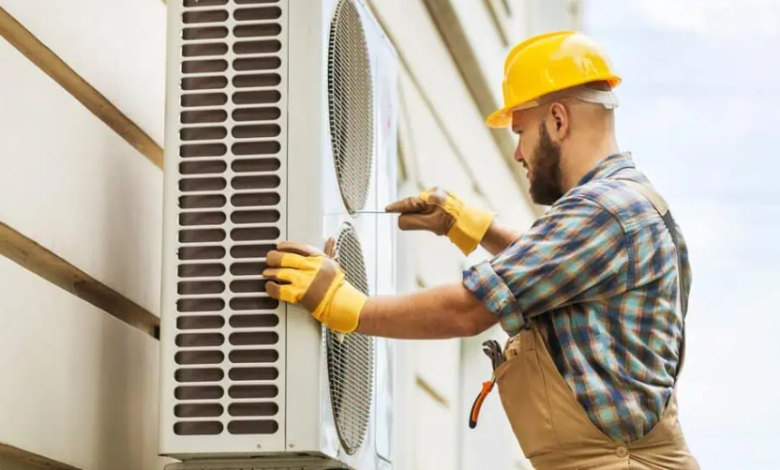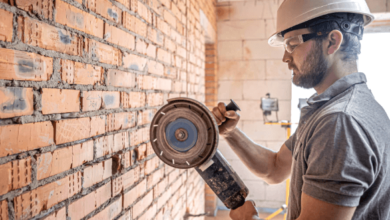The Lifespan of an AC Unit in Canada: When to Repair and When to Replace

When your AC starts acting up, blowing warm air, making strange noises, or driving up your energy bill, it’s easy to wonder: should I fix it or get a new one? In Canada, where summers can be short but intense, knowing how long your air conditioner should last and when it’s time to let go can save you money and stress. Many homeowners hold on to aging units, hoping a quick repair will do the trick, while others replace too soon without knowing their options.
This guide is here to help you make the right call based on your AC’s age, condition, and performance. Whether you’re dealing with frequent breakdowns or just planning ahead, understanding the lifespan of an AC unit in Canada can help you avoid surprise costs and stay comfortable all season long. Interact with Air Conditioning Services experts in Kitchener to schedule a repair, replacement, or inspection and keep your AC running strong this summer!
In this blog, we will explore how long AC units typically last, when repairs make sense, and when replacement is the smarter move.
How Long Does an AC Unit Last in Canada?
In Canada, the average AC unit lasts between 15 and 20 years, but several factors can shorten or extend that timeline. Since Canadian summers are shorter and milder compared to other regions, AC units may not run as often, which can help them last longer. However, harsh winters can wear down outdoor components, especially if the unit isn’t properly protected or maintained.
Here are key factors that affect how long your AC will last:
- Usage Frequency: Less use during cooler months can reduce wear and tear.
- Maintenance Habits: Regular filter changes, coil cleaning, and annual check-ups help prevent breakdowns.
- Installation Quality: A well-installed unit runs more efficiently and lasts longer.
- Unit Location: Outdoor units exposed to snow, ice, or debris may wear out faster.
- Brand and Model: Some systems are built with higher-quality parts that offer longer service life.
Understanding these factors helps you decide whether to repair or replace your AC when issues arise.
5 Signs Your AC Unit May Need Repairs
If your air conditioner isn’t working like it used to, it’s often more than just a minor inconvenience, it could be a warning sign of a bigger issue. Catching these signs early can help you avoid costly repairs or, in some cases, a complete system replacement. Here are five common indicators that your AC may need professional attention:
- Sudden Spike in Energy Bills
If your electricity bill has jumped without a change in usage, your AC might be working harder than it should. This often happens when components like the compressor or coils are struggling, forcing the system to use more energy to cool your home.
- Bad Smells
A stale odor may indicate that mold is developing within the unit or duct system. A burning scent could suggest a problem with the electrical system. Either way, strange smells are a clear sign that something isn’t right and should be checked immediately.
- Frequent Cycling
Your AC should turn on, cool the space, and turn off smoothly. If it’s constantly switching on and off, it could be due to:
- A faulty thermostat
- Low refrigerant levels
- Electrical problems
This kind of behavior puts extra strain on the system and shortens its lifespan.
- Unusual Noises
Grinding, banging, or squealing sounds aren’t normal. These noises often point to loose parts, motor issues, or internal damage. Ignoring them can lead to more serious mechanical failures.
- Thermostat Not Responding Properly
If your thermostat doesn’t reflect the actual room temperature or fails to trigger cooling, it may be malfunctioning. Sometimes the issue lies in the wiring or sensors, and it can affect the entire system’s performance.
Spotting these signs early helps prevent bigger problems down the road. If you notice any of them, it’s a smart move to schedule an AC inspection before the issue worsens. If these warning signs sound familiar, contact AC Repair professionals in Cambridge for prompt, professional service.
See also: The Ultimate Guide: Is a High-Pressure Opener Right for Your Home
When Is It Time to Replace Your AC Unit?
Replacing your AC unit isn’t a decision most homeowners take lightly, but sometimes, repairs just aren’t enough. If your system is showing signs of age or inefficiency, a replacement could save you money and improve comfort in the long run. Here are five key indicators that it might be time to upgrade:
- Your AC is Over 10–15 Years Old
Most air conditioners last around 10 to 15 years with proper maintenance. After that, efficiency drops, parts wear out, and breakdowns become more frequent. If your unit is nearing or past this age, it’s worth considering a newer, more energy-efficient model.
- Frequent and Costly Repairs
If you’re calling for service every season, or worse, multiple times a year, those repair bills add up quickly. Instead of patching up an aging system, investing in a new unit can offer better performance and peace of mind.
- You’re Planning a Home Upgrade or Renovation
Renovations often change your home’s layout, insulation, or square footage. Your current AC may no longer be the right size or type for your updated space. A new unit ensures your cooling system matches your home’s latest demands.
- Rising Energy Bills Despite Maintenance
Even with regular tune-ups, older units lose efficiency. If your energy bills keep climbing and your usage hasn’t changed, your AC may be working overtime to deliver the same results.
- Thermostat Issues Persist
If you’ve replaced or recalibrated your thermostat but still struggle with temperature control, the issue may lie within the AC unit itself. Inconsistent cooling or unresponsive settings can be a sign that your system is no longer functioning correctly.
If you’re noticing one or more of these signs, it might be time to stop repairing and start planning for a replacement. A new AC unit can improve comfort, reduce energy costs, and give you reliable performance for years to come.
Extend the Lifespan of Your AC in Canada with These 5 Tips
Taking care of your AC unit doesn’t have to be complicated. With just a few simple habits, you can keep your system running smoothly and help it last well beyond the average lifespan. Here are five practical tips every Canadian homeowner should follow:
- Schedule Annual Professional Maintenance: Having your AC checked by a licensed technician once a year, ideally before summer, can catch minor problems early and keep the system working efficiently.
- Use a Programmable or Smart Thermostat: Setting temperature schedules helps avoid overcooling and reduces unnecessary strain on your AC. Smart thermostats can even adjust automatically based on your habits.
- Address Small Issues Promptly: If you notice strange noises, weak airflow, or inconsistent cooling, don’t wait. Fixing minor problems early prevents bigger, more expensive repairs later.
- Change or Clean Filters Regularly: Dirty filters block airflow and make your AC work harder. Replace or clean them every 1–3 months, especially during peak usage.
- Avoid Overworking the System: Use ceiling fans to help circulate cool air and keep your thermostat a few degrees higher when possible. This reduces wear and helps your AC last longer.
By following these tips, you’ll not only extend the life of your AC unit but also enjoy better cooling performance and lower energy bills year after year.
Final Words
In Canada, most AC units can last well over a decade with proper care, but age, repair costs, and efficiency are key signs of when it’s time to move on. If your system is still relatively new and the fix is minor, a repair can keep it running smoothly, but if it’s older, breaking down often, or driving up your energy bills, replacing it could save you money and stress in the long run. By keeping up with regular maintenance and weighing costs against benefits, you can make a smart choice that keeps your home comfortable for years to come.






